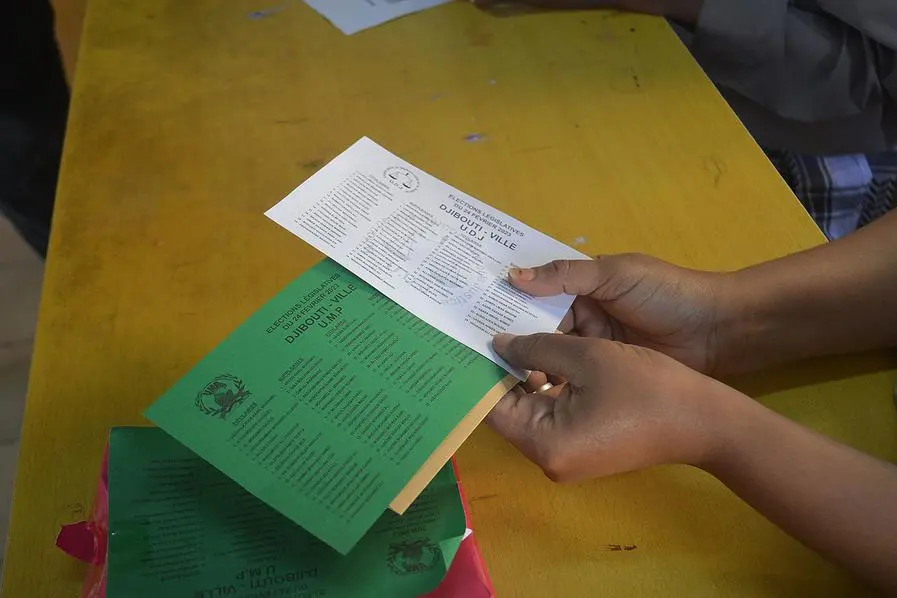PHOTO
Voters in the Horn of Africa nation of Djibouti were choosing a new parliament on Friday in an election boycotted by the main opposition parties.
The election is being held amid speculation over a potential successor to President Ismael Omar Guelleh, one of Africa's longest serving leaders, who has ruled with an iron fist since 1999.
Guelleh's ruling Union for Presidential Majority (UMP) is one of only two parties taking part and is certain of victory.
Some 230,000 eligible voters are choosing 65 MPs for a five-year term, with the law stipulating that 25 percent of the seats must go to women.
Turnout appeared low, according to local media.
"I never vote and I won't vote today too. I am not interested in this election, my whole family is not going to vote too," said 30-year-old engineer Moktar Abdi.
Retiree Souad Elmi Siyad, 64, added: "In each election I vote for the same government."
Despite its diminutive size, Djibouti enjoys a strategically crucial position at the mouth of the Red Sea, using it to woo trade investors and foreign military powers.
- 'A charade' -
The poll follows a presidential ballot in April 2021 that saw Guelleh, commonly known as IOG, re-elected for a fifth term with 97 percent of the vote.
Under Guelleh, 75, Djibouti has seen a crackdown on press freedom and dissent.
The main opposition parties, including the Movement for Democratic Renewal and Development (MRD) and the Republican Alliance for Democracy (ARD), are boycotting Friday's vote.
"Elections in our country are still not free, not transparent and not democratic," the MRD said in a statement in January, branding the vote a "charade".
In the last legislative ballot in 2018, the UMP -- which emerged from a party that ruled Djibouti since independence from France in 1977 -- won 58 seats.
The Union for Democracy and Justice (UDJ), which won a handful of seats last time, is the only other party running.
"Everything is being done to ensure that the election takes place in good conditions," Interior Minister Said Nouh Hassan said Thursday.
Benedikt Kamski, Horn of Africa researcher for Germany's Arnold Bergstraesser Institute, told AFP that public interest in the election was "very, very limited".
In the background is the highly sensitive topic of who will become the next president, in a society marked by clan dynamics and the balance between the two main communities, the Issa and the Afar.
"People are curious as to who is going to follow IOG as president," said Kamski, suggesting a successor could be chosen before the 2026 presidential election.
Guelleh, only the second president since independence, cannot run again because of an age limit of 75 set in the 2010 constitution.
Under Guelleh, the country of one million people has exploited its prime geographical advantage, investing heavily in ports and logistics infrastructure with funding from abroad, particularly from China.
Flanked by Eritrea, Ethiopia and Somalia, and across the sea from Yemen, the desert nation has remained stable in a volatile neighbourhood.
Foreign military powers including France, the United States and China have established bases there.





















